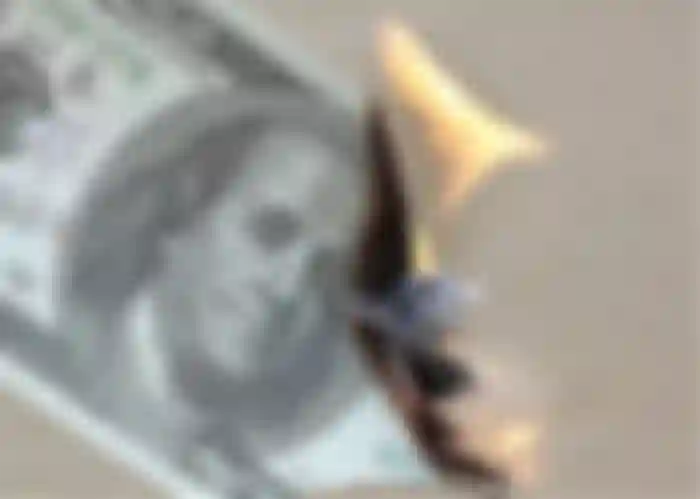For better than the past year and a half I have been slowly repositioning my portfolio, and essentially am in the process of greatly reducing my exposure in the stock market.
It is not, and was not, a decision that I made particularly because I saw anything bad coming. At the same time, all things considered, I was fully aware when I began shifting money around that I felt that the market was slightly inflated, and that the bull run that we continue to be in today is one of the longest in history, and eventually things just have to make a turn.

Dips happen, and so do bear markets. These are just inevitable things. And while most of true investing is based on real things like fundamentals, some of the investment decisions we make are made from the gut as well.
Take my decision to invest in Rivian for example. The latest company in the electric vehicle market to enter the world of publicly traded companies. While I have data that I of course looked at before I made my decision to buy in, the company is not entirely proven, and therefore at best my decision to enter into this position has a lot to do with what my gut tells me.
A year and a half later from the decision I made to pull more and more money out of the markets, I am more convinced than ever that it was the right decision. Because there are a lot of things that are happening on the economic stage as of this writing that I think can impact driving stocks lower in the relative near term.
Of course, we all know that quantitative easing that was done by the Federal government over a period of many years served to prop up the markets a bit. At the same time, massive printing of money over the same period has at least contributed somewhat to the problematic inflation we are all having to deal with.
There are other factors helping inflation along. Bad energy policy by the Biden administration which has sent gas prices through the roof. A damaged supply chain which has risen the cost of getting goods to market and goofed up supply and demand. Massive labor shortages which have driven up wages that must be passed along to consumers.

There is also the looming threat of higher taxes that is driving companies to charge more for their goods and services. And very soon the Fed will be raising interest rates.
On the latter, I think raising interest rates is long overdue. But that's for another day.
But all of these things spell, for me, a coming lull in the markets, and a potential steep retracement in consumer spending—especially when it comes to discretionary spending.
The greatest threat is actually stagflation, which is a situation that occurs when wages cannot keep up with the pace of inflation. And with inflation on a steady clip upwards, if it keeps up at that pace, there is no way wages will be able to keep up, and stagflation is entirely unavoidable.
And stagflation is by far the worst thing an economy can endure. The only way to kill it is to kill the economy. And we have precedence on this.
The last time we had a similar situation was in the Carter years. In order for stagflation to end, president Reagan had to make the very difficult decision to literally kill the economy and send us into a very deep recession. In just roughly two years his decision proved massively successful, and the economy burst into action and spurred on about 20+ years of pure economic growth.

While the economy has advanced and retraced as it would naturally be expected to do, over the last 40 years or so inflation has been largely kept under control, and economic growth has largely outpaced any nominal short-term retracements.
In an environment like this, I am just all too aware that the value of my stocks today will be worth less in the near term if the economic pressures I am anticipating become true.
For that reason, preservation of capital has been a very strong consideration for me, coupled with the idea that if and when the correction occurs, and we experience a volatile economic environment, when the dust settles and the smoke clears, I want to be able to have plenty of cash on the sidelines to be able to seize the opportunity and grow my wealth and my portfolio on the way back up.
I am not trying to instill fear into anyone's thinking. What I am merely saying is that times like this require one to be extremely thoughtful and cautious about what they do, and how much exposure they can handle in the interim.
At present I am currently at 40% stocks, 58% cash, and 2% crypto. These numbers are slightly skewed since I have some private investments that I do not include. This illustration is just to keep things simple.
It may not be for another year before the market and the economy take a turn. But I do see it coming, and I think it is inevitable. Unfortunately, many people will be burned, especially those who have enjoyed what has essentially been a 'dartboard stock market,' that has drawn in gangs of inexperienced investors who did not need to pick good stocks. Just any stocks. And they could still make money.
What is a dartboard stock market?
It is a stock market in a massive bull run such as we have been in for a very long time, wherein you can put a bunch of companies onto a dartboard, blindfold yourself and throw the darts, and wherever your dart lands, buy that stock and have it be a successful stock pick.
Dartboard investors are not going to see the coming storm because all they have experienced is success. In their minds it is success based on something they did. They feel like they know what they are doing because the numbers bear that out in their minds.
Those 'investors,' when reality comes home to roost on their doorstep, will become fearful of the markets. Moreover, they will become suspicious of the markets. And some may never feel comfortable ever reentering, thinking the whole thing is just rigged, even though the reality is that their losses would have been a result of their simple lack of understanding and experience.

Whatever you decide is entirely up to you, of course. I am not a financial expert, nor am I an economist. I am simply one investor in a sea of many who is basing decisions I make in the markets on past experience, common sense, and my own personal analysis.
What I do say is that I think throwing caution entirely to the wind right now may be an unwise thing to do. Right now, I think, is a good time to evaluate how you can best keep more of what you have, and be more prepared to navigate a changing economic climate, and yet still have an opportunity to grow your wealth despite everything else that is happening.



